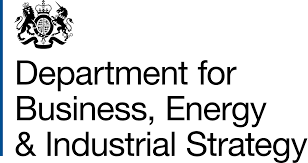PRESS RELEASE : Changes to independent school inspection [January 2012]
The press release issued by the Department for Education on 24 January 2012.
These changes, proposed for September 2012, are intended to raise expectations for further improvement in the performance of these schools, for the benefit of children, parents and carers.
Inspection reports will provide a clear assessment of how children are doing in the context of their age and ability. They will be based on observations of work, taking into account starting points and a school’s record of pupil progress.
Read the consultation: Introducing a new framework for inspecting non-association independent schools.
The key inspection judgments proposed are:
- overall effectiveness
- pupils’ achievement
- pupils’ behaviour and safety
- quality of teaching
- quality of the curriculum
- provision for pupils’ spiritual, moral, social and cultural development
- provision for pupils’ welfare, health and safety
- leadership and management
In view of the diversity in size and nature of independent schools Ofsted is seeking to consult as widely as possible to gain the views of all interested parties on the proposals.
Ofsted Director of Education and Care, Jean Humphrys said:
The quality of teaching is the key driver of school improvement. One of the main findings from Ofsted inspection in this sector is that the quality of teaching in non-association independent schools tends to be competent but seldom inspiring.
It is vital that our inspection is incisive and rigorous, and that judgments are fair, clear and helpful to a school’s further development. With these new arrangements we will focus more sharply on what makes teaching truly effective.
The proposals build on the current arrangements for inspection. Ofsted will continue to use a 4 point scale to make qualitative judgements. Detailed grade descriptors will seek to provide more consistency, openness and transparency and encourage independent schools to strive further for improvements to the quality of provision.
Ofsted currently gives independent schools 2 days’ notice of their education inspection but for inspection of care in boarding and residential special schools no notice is given. Ofsted intends to adopt a similar system for the education inspection of independent schools. Pupils, parents and carers have told Ofsted that inspection without notice is important as it lets the inspectors see the school as it really is.
The views of the pupils themselves, as well as parents, carers, staff and local authorities who use the services of independent schools are highly valued by inspectors who follow up the issues they raise. These views will continue to be an important feature of inspection.
Despite recent improvement, the biggest single weakness in non-association independent schools remains the high proportion of schools (12%) which do not have sufficiently robust arrangements for safeguarding pupils’ welfare, health and safety. Ofsted will continue to check that secure and robust arrangements are made to provide a safe environment for children. It is therefore proposed to retain the separate judgement for pupils’ welfare, health and safety.
Additional proposals put forward for consultation cover children’s homes offering education, focussing on the quality of education where it is weakest: for looked after children in independent children’s homes which are registered education providers.
Among independent children’s homes which are registered education providers there is a comparatively lower proportion that makes good or outstanding educational provision. The new framework will focus on the educational progress and achievements of looked after children and look critically at what schools are doing to close the gap between their achievements and other pupils.
Following the consultation, Ofsted intends to test the new inspection arrangements in pilot inspections, before introduction in September 2012.
Ofsted inspects all non-association independent schools in England. These comprise around half of more than 2,000 independent schools. The remainder is inspected by the independent inspection bodies, Independent Schools Inspectorate (ISI), School Inspection Service (SIS) and Bridge Schools Inspectorate (BSI).



